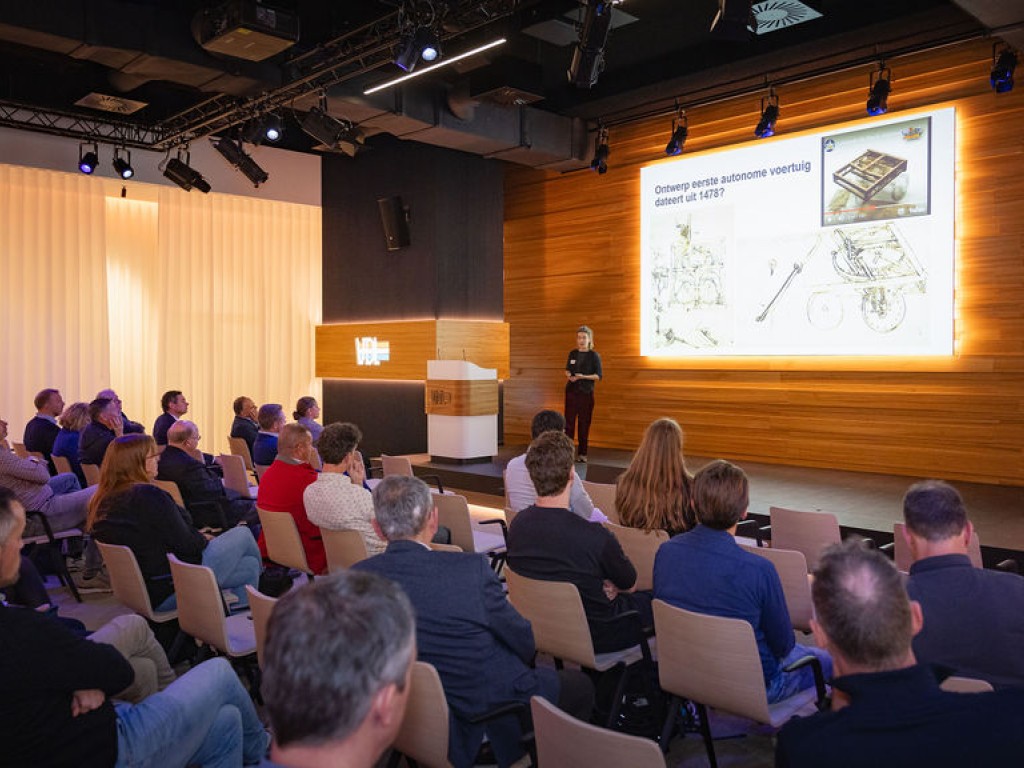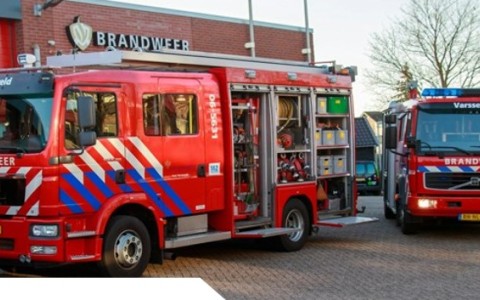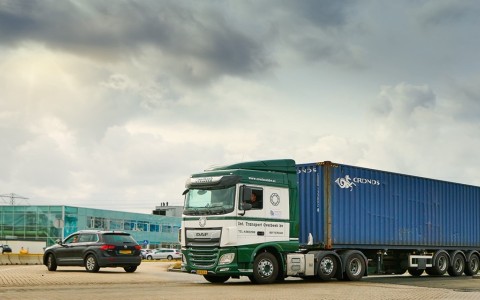Autonomous transport in practice: cooperation accelerates innovation at business parks

On 30 October 2025, over 70 participants from industry, government and knowledge institutes came together at VDL in Eindhoven during the event "Autonomous Transport on Business Parks", organised by TKI Dinalog, Top Sector Logistics, TNO, VDL and the SAVED Consortium. The meeting offered a unique opportunity not only to hear about the latest technological developments, but also to experience them directly. From pioneering projects at the Container Terminal in Rotterdam to commercial initiatives in the US, autonomous transport is getting more and more concrete from the drawing board to practice. The day especially emphasised that innovation only really progresses when companies, knowledge institutions and governments work closely together: learning, testing and demonstrating together is the key to deploying autonomous vehicles safely and efficiently on business sites.
An afternoon of innovation and practical examples
The programme began with a welcome speech by TKI Dinalog and VDL, followed by a keynote by Elisah van Kempen (TNO) on sustainable and smart mobility. Autonomous transport is starting to take shape. We see movement on several fronts: at the Container Terminal in Rotterdam, the Netherlands is among the pioneers, and internationally commercial parties like Aurora in the US are already putting hundreds of thousands of miles on the road completely driverless. Companies like Einride and Kodiak are also preparing commercial applications on public roads, with a wider launch planned around 2027.
"Autonomous transport is gaining momentum - from pioneering projects in Rotterdam to commercial applications in the US. The question is no longer if, but where and how we start. Vehicles are increasingly becoming data collectors, and that knowledge will help us make the technology smarter and safer." - Elisah van Kempen, TNO
The question now is: where do you start, what can you do today, and what role do you play in the ecosystem? Afterwards, several business cases were explained, in which companies shared their experiences about the opportunities and challenges of autonomous transport in practice.
Learning from practice: three business cases
DPD Netherlands stressed that the step towards autonomous transport is one of the long haul. It requires new competences from employees as well as conviction within the management, which is not yet always well acquainted with the technology.
There is also a clear social component: many employees at DPD work at night, which is stressful for their health. Autonomous transport can provide a solution in this regard. Moreover, logistics companies are struggling with a shortage of drivers - automation can contribute to greater efficiency and continuity here.
Bob Joosten (Wessem Port Services Group) shared experiences from the Chemelot case. There, there is intensive cooperation between companies, knowledge institutions and government to make strides in autonomous logistics. Joosten stressed the importance of continued testing and demonstration:
"You have to work together, show a lot and keep testing. This is the only way to create support - even among governments."
Also Jan Geertink (XL Businesspark Twente) showed how complex it can be to enable autonomous transport on business parks. Technically, much is feasible, but regulations and decision-making remain challenges.
"You have to deal with many parties - from companies to property developers to local authorities. Often one person within an organisation is decisive, and that makes the process vulnerable. Yet we need to move from vision to implementation precisely now."
Live demos and hands-on experienceOne of the highlights of the afternoon were the demos of VDL's Mixed Traffic Transporter and the SAVED HAN mini-trucks, where participants could experience the technology up close in small groups. The VDL Experience Centre also offered an interactive look at the vehicles of the future.
Panel discussion on opportunities and challengesThe event concluded with a panel discussion led by Liesbeth Brügemann (TKI Dinalog / Top Sector Logistics). Panellists such as Bob Joosten (Wessem Port Services Group), Karel Smits (VDL Automated Vehicles) and Jaco van Meijeren (TNO) discussed topics such as technology, safety, regulations and social impact.
The discussion offered both inspiring insights and concrete tools for the further implementation of autonomous vehicles.
Together towards the futureThe afternoon showed that the future of autonomous transport is closer than ever, but also that cooperation, trust and knowledge sharing remain essential. The combination of substantive presentations, practical examples and live demonstrations gave participants a clear picture of the next steps needed to successfully implement autonomous transport on business parks in the Netherlands.
"It is inspiring to see how technology, policy and practice are increasingly coming together - exactly what is needed to get autonomous transport off the ground.
The event underlined that autonomous transport is not future music, but a concrete and necessary step towards more efficient, safe and sustainable logistics in business parks.
Contact & more information:
For questions or more information about TKI Dinalog and Top Sector Logistics: info@dinalog.nl


